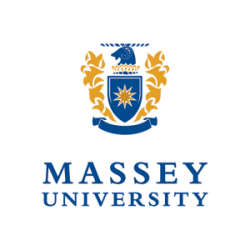
Supervising African Doctoral Students
Status
Completed: 6 April 2017
Project Details
A project exploring the experiences of African international research students that aimed to provide new and different perspectives on supervision practice in Aotearoa/New Zealand. A collaboration involving Victoria University of Wellington, Victoria University of Melbourne and Massey University.
Aims:
The aims of the project were to:
- enhance understanding of intercultural communication within the supervision relationship and how this may shape learning
- identify which supervisory processes (both teaching and learning) are most appropriate in moving African students to successful completion
- document culturally-effective supervision practices in work with African students
- develop a set of web-based and print resources for supervisors that will improve the learning outcomes of African research students and enhance intercultural communication within supervision generally.
Methodology:
The methodology included:
- a literature review
- research questions
- research designs and methods
- data collection and analysis methods
- analysis of student demographics and disciplines
- interviews with students and supervisors
- written feedback on draft writing.
In particular, the team focused on the following research questions.
- How is teaching and learning affected by the supervisory relationship between African doctoral students and their supervisors including the challenges of intercultural communication, relationship management, learning needs and differing expectations?
- How might the findings of this project be relevant for improving the supervision of all research students (especially those from diverse cultural backgrounds such as international students and Māori and Pasifika students)?
Team

Dr Stephanie Doyle
Project Leader
Victoria University of Wellington
Sue Cornforth
Victoria University of Wellington
Rachel Tallon
Victoria University of Wellington
Gerard Prinsen
Massey UniversityCatherine Manathunga
Victoria University of MelbourneStatus
Funding
$20,834.00 (excl GST)
Key Findings
Findings on the supervisory relationship between African doctoral students and supervisors
- Culture, previous postgraduate education, English language usages, field and topic of study and personality all impacted on teaching and learning for students and supervisors.
- There was a clear sense that universities and most supervisors had limited knowledge of African countries and cultures.
- There would be value in expanding knowledge and awareness of African cultures within university and supervisors.
- Some students saw value in helping students learn about New Zealand culture.
- A number of students expressed a preference for having written feedback from supervisors on drafts prior to meetings to provide the chance to read and understand comments
- The reaction of students to comments such as “I don’t understand”, “Please explain” “This does not make sense”, suggested there was an unintended effect of students feeling “slighted” or disrespected.
- A similar response was evident for African students referred to student learning support services. These responses suggested a need to look closely at how such feedback was constructed and how writing and other skills development was provided to doctoral students.
Findings on improving supervision for all research students
- Acknowledging that culture and personal histories influence the supervision experience and relationships was something students and supervisors should do early on and throughout the supervision relationship.
- Students and supervisors emphasised the importance of relationships and understanding the context from which students came from and were returning to.
- Some students highlighted the importance of being recognised as a person with roles in society and both explicitly or implicitly linked this to feeling respected.
- The relationships with supervisors and having a sense of belonging within their departments were important to students.
- Both students and supervisors typically reported positive and productive relationships.
- A small number of supervisors actively worked to develop their students as academics and their relationship to their disciplines and this was a promising aspect of intercultural supervision.
- Thesis groups appeared to provide valued connections akin to communities of learning and learning from others.
- Students identified difficulties in moving from entrenched notions of students respecting and not questioning their supervisor’s views to learning how to argue, challenge or ask questions.
- Supervisors could assist students adjust to the new environment by spending time on clarifying short-term and long-term expectations.
- In the absence of staff members with African expertise, there was value in New Zealand academics having close links with an African department.
- The relationships and connections forged during students’ doctoral journeys had the potential to carry into the future and to provide collegial opportunities for consultation and collaboration.
Key Recommendations
Clarify expectations | Students and supervisors should talk about past research and academic experiences and about expectations they have of each other in the supervision relationship.
Work on the relationship | Work to create the space and a supervision relationship where the student is comfortable enough to share what they are thinking and where there can be dialogue.
Talk about goals | As well as successfully completing a PhD, students may also have other goals that it is good to talk about, eg, career aspirations, making a difference with their research and publishing goals.
Create connectedness and belonging | Find ways lecturers and students can learn more about one another's cultures to help students feel connected and a sense of belonging, eg, encourage student-led thesis groups and social activities such as barbeques.
Have an open mind | Be curious and open to other cultural ways of knowing and being.
Focus on scholarly writing | Provide guidance and support by encouraging student writing groups or inviting students to be part of writing projects.
Clarify the approach | Be conscious of and discuss the pedagogical approach being taken.
Understand the importance of feedback | Students and supervisors should discuss timing and mode of feedback .
Be open to feedback | Adapt supervision according to student feedback and suggestions.
A research report by Stephanie Doyle, Catherine Manathunga, Gerard Prinsen, Sue Cornforth and Rachel Tallon.
(PDF, 417 KB, 61-pages).
- 6 April 2017
A research report by Stephanie Doyle, Catherine Manathunga, Gerard Prinsen, Sue Cornforth and Rachel Tallon.
(PDF, 255 KB, 12-pages).
- 6 April 2017